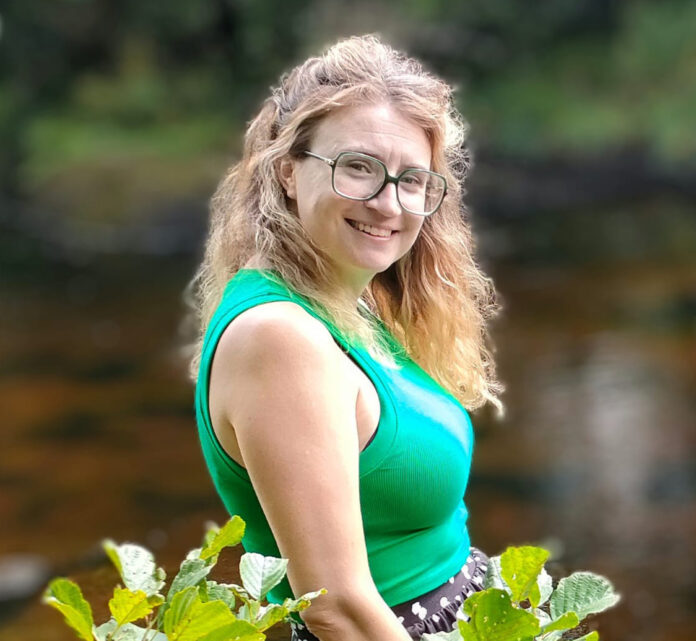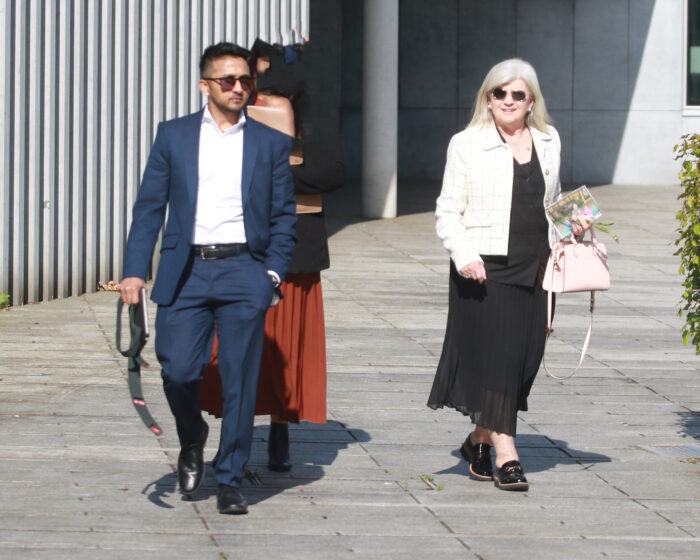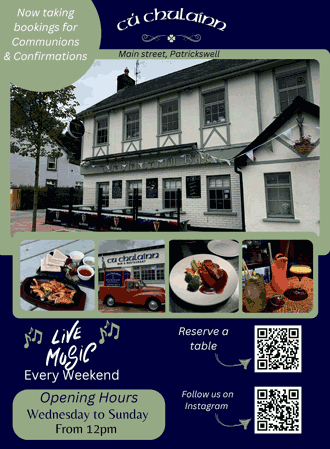
A LIMERICK coroner, after hearing that a tourist fell to her death from a hotel balcony after she ingested a cannabis jelly, pledged to write to the HSE to issue a public warning about the dangers of cannabis sweets.
Nurse and mother of two, Katherine ‘Katie’ Batchelder, from Boston, Massachusetts, in the USA, was visiting her mother’s native Limerick City to enjoy the city’s Riverfest May Bank Holiday celebrations in 2023 when she died.
She was due to meet with friends and attend a Hermitage Green concert at King John’s Castle – of which some of her cousins are band members – her inquest at Limerick Coroners’ Court heard.
Along with her mother, Fidelma Batchelder, and her sister, Stephanie Smith, Katie was staying in the Strand Hotel in Limerick City.
After enjoying a night out at a local restaurant, the three women returned to the hotel to pack their suitcases and get some rest ahead of flying home the following day.
At some stage on the night in question, Katie Batchelder consumed at least half a cannabis jelly, which she used as a sleeping aid twice a week, it was heard.
Her family said she had been in good form earlier on the night, however it was heard that she suffered a “psychotic episode” after she returned to her hotel room.
Another guest who was staying at the hotel, Joanna Jakma, told the inquest she was awoken shortly after 3am on May 2, 2023, to loud noises coming from Ms Batchelder’s room.
When she went to investigate, believing someone was in danger in the room, Ms Jakma found the US tourist “distressed” and completely undressed.
Ms Jakma said she believed Ms Batchelder was suffering from a mental health issue and tried to assist her.
The witness said Ms Batchelder attacked her, “aggressively grabbed” her private parts, and tore her pyjama pants.
“I thought my life was in danger,” Ms Jakma told the inquest.
She said Ms Batchelder “tried to bite me on my left thigh” and that she chased Ms Jakma along the corridor of the hotel.
Ms Jakma said she told hotel staff, who arrived on the scene, that Ms Batchelder was dangerous and she warned them to be careful.
The only two staff members on duty on the night said they tried to assist Ms Batchelder and bring her from her room on the third floor down to the lobby on the ground floor via an escalator.
The inquest heard Ms Batchelder fell to her death from a third-floor glass panel balcony to the first floor after she moved away from staff.
‘Intoxicated woman running around the hotel’
Hari Somaraju, who was working at the hotel on the night, told the inquest he phoned for Garda assistance after Ms Batchelder “jumped” at him. Moments later he said he called for an ambulance after she left the balcony.
In a deposition read out on his behalf, former Strand staff member Nicolas Abarca Fernandez said he was shocked at Ms Batchelder’s behaviour on the night, adding that he suspected she had been suffering from a “psychiatric condition or alcohol”.
Gardaí said they received a report of “a naked intoxicated woman running around the hotel”.
Before Gardaí arrived at the hotel, three minutes after receiving the alert, Ms Batchelder was dead or dying having fallen from the balcony.
Gardaí and paramedics tried to save Ms Batchelder, but she was pronounced dead at the scene.
Retired consultant pathologist Dr Gabor Laskai said he conducted a postmortem on the deceased’s body and concluded that Ms Batchelder died due to blood aspiration (blood blocking her airways) after sustaining a skull fracture in the fall.
Dr Laskai said toxicology tests found no alcohol in Ms Batchelder’s system, but there was evidence of cannabis as well as anti-depressant drug Citalopram, which was above the prescribed therapeutic level but was not at toxic levels.
He said the two substances may have interacted with “unexpected” consequences.
“Biology and drugs behave in a strange way,” Dr Laskai offered.
He agreed with junior counsel Doireann O’Mahony, representing the Batchelder family, that this combination of drugs might have been a “possible influencing factor” in the psychotic episode experienced by Ms Batchelder.
Dr Laskai said while he had not personally come across another postmortem case which involved cannabis jellies, but was aware that the Irish health authorities had previously raised concerns about “synthetic cannabis” being put into cannabis jellies.
He agreed with Ms O’Mahony that cannabis jellies could potentially cause delusions and hallucinations.
In her deposition, Fidelma Batchelder said she did not believe her daughter had intended to die on the night, telling the inquest: “I believe she had a psychotic episode from what I’ve been told, and I don’t think she wanted to die.”
Katie Batchelder’s family said they had never previously known her to experience a similar episode and that it was completely out of character.
“The only thing the staff person said to me was, ‘sir, she jumped’”
Ms Batchelder’s husband, Aarav Sundaresh, said his late wife was a “sound and stable individual” and that, in his opinion, “her death could have been prevented … it did not need to be this way”.
He said he disagreed with the description in the Garda report of “an intoxicated female running around the third floor”, and he queried whether the hotel realised it was an emergency situation, if there was enough staff on duty, whether staff trained to deal with emergencies, and what were the hotel’s emergency protocols.
He said he spoke over the phone to his wife in her final moments before the line went silent and a staff member came on the phone to tell him his wife had jumped.
“The only thing the staff person said to me was, ‘sir, she jumped’, and then the call abruptly ended at 10:20pm (US time).”
“I was in shock and could not understand what was going on. Everything I heard was completely out of character and nothing I had ever witnessed with Katie.
“While Katie had experienced depression, she had never experienced any altered psychological state or self-harm threat.”

Dermot Fehily, who at the time held the position as the hotel’s deputy general manager, confirmed to the inquest that risk assessments were carried out in every area of the hotel prior to Ms Batchelder’s death.
Mr Fehily also confirmed that no design or structural changes were carried out in respect of the balconies at the hotel after Ms Batchelder’s death.
He said two night staff was considered standard practice at hotels and that all of the hotel’s staff were trained in first aid as well as various potential emergency scenarios.
He said the hotel’s emergency protocols were followed on the night, as staff first assessed the situation then alerted the emergency services as well as the hotel’s management staff.
Coroner John McNamara ruled out a verdict of death by suicide, saying: “It’s clear this was a psychotic episode induced by the consumption of an edible cannabis gummy or jelly and prescribed medication found in (Katie’s) system.”
“On the balance of probabilities, she fell, as opposed to having jumped, and it’s clear that she didn’t intend this outcome.”
Recording a narrative verdict in line with the evidence heard, the coroner said he had “a duty to bring forward to the public the risks involved” with cannabis jellies.
He highlighted a 2022 report published by Forensic Science Ireland which found that cannabis edibles had caused adverse reactions and hospitalisations.
Noting information provided by Ms O’Mahony that 3,000 people had been hospitalised due to ingesting cannabis jellies over the past four years, the coroner said: “The dangers of these edibles should be brought to the attention of the public.”
Mr McNamara said he would write to the HSE in respect of issuing a public warning about the associated risks of the jellies.








